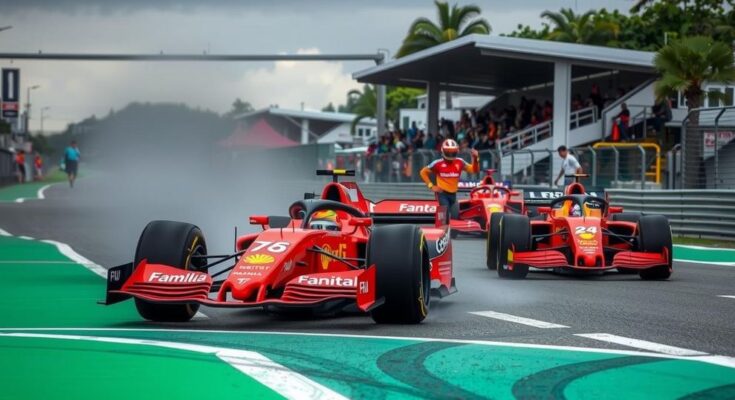This article evaluates the implications of hosting Formula 1 Grands Prix in Rwanda, South Africa, and Thailand, highlighting the misalignment of priorities in nations facing socio-economic hardships. It argues that government investments in such events may divert funds from essential services and fail to yield anticipated economic benefits. A call for the FIA and F1 to rethink their approach is made, advocating for affordability and community investment in motorsport instead of catering exclusively to affluent tourists.
The aspiration of Rwanda, South Africa, and Thailand to host a Formula 1 Grand Prix raises concerns regarding the appropriateness of such events in nations with pressing socio-economic issues. The appeal for increased representation in F1 from regions lacking historical ties to motorsport underscores a misalignment of priorities, especially in countries where many citizens live below the poverty line. Governments in these nations seem to prioritize high-profile sporting events over essential public needs, sparking a debate about the real beneficiaries of hosting such elite sporting spectacles.
Despite South Africa’s efforts to revive its Grand Prix, the underlying challenge remains securing adequate funding. Past attempts have shown that the financial commitment required for hosting F1 events often outweighs the potential economic benefits. The example of the Malaysian Grand Prix illustrates that such events can lead to net losses rather than the anticipated influx of tourism and prestige.
Furthermore, the notion that government investment in F1 will spur tourism comes with significant doubts. The financial burden on residents instead favors the affluent, while crucial services such as healthcare and infrastructure development remain underfunded. Investment in local community projects and affordable ticketing would better serve the public interest and reflect a commitment to fostering grassroots motorsport rather than catering to an elitist audience.
Therefore, it is imperative that organizations like the FIA and F1 reconsider their affiliations and methodologies in engaging with nations like Rwanda, South Africa, and Thailand. They should strive to invest in local development by eliminating service fees for race organizers and promoting accessibility to the sport for local demographics, thereby fostering genuine interest and participation in motorsport amongst broader populations.
The discussion surrounding the potential inclusion of Rwanda, South Africa, and Thailand in the Formula 1 calendar reflects a broader debate about the ethics of hosting elite sporting events in countries facing significant societal challenges. Many rural and urban populations in these countries struggle with poverty, lacking basic amenities, and such events may divert necessary resources away from critical public needs. Additionally, the historical context of motorsport in South Africa differs significantly from that of countries with no established motorsport culture like Rwanda and Thailand, raising questions about the sustainability and relevance of F1 in these regions.
In conclusion, while the drive for F1 to expand its global footprint is understandable, the pursuit of hosting Grand Prix events in Rwanda, South Africa, and Thailand warrants a meticulous examination of the socio-economic context. Prioritizing elite sporting events in countries facing dire poverty reflects poorly on F1’s social responsibility. A more beneficial approach could involve investing in local motorsport initiatives and making the events accessible, showcasing a commitment to community upliftment and genuine sport development.
Original Source: www.gpblog.com




